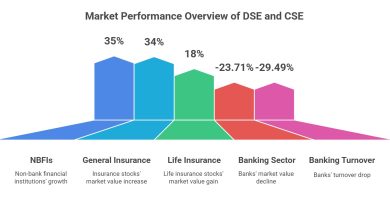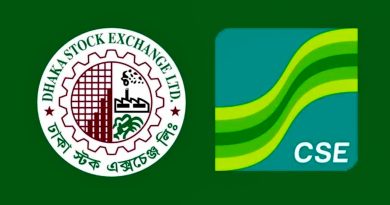After narrowly avoiding collapse from a liquidity crisis and massive loan irregularities linked to the S Alam Group, Islami Bank Bangladesh PLC has launched an ambitious comeback — aiming to reclaim its place as the country’s leading commercial bank.
In an exclusive interview with The Financial Express, Chairman Obayed Ullah-Al Masud detailed how the Bangladesh Bank-appointed board has steered the bank back on course through a structured three-phase roadmap: an “inventory period” (Aug–Dec 2024), “turnaround time” (Jan–Dec 2025), and “moving ahead” (2026). “Encouragingly, we’re progressing faster than planned,” said Mr Masud, who has four decades of banking experience.
Key figures highlight the scale of the recovery. Total deposits rose from Tk 1.53 trillion in August 2024 to Tk 1.73 trillion by June 2025, with net deposits up by Tk 200 billion and 2.43 million new accounts opened in just 10 months. The bank’s current account swung from a Tk 23.08 billion deficit last August to a Tk 79.38 billion surplus by June — a dramatic financial turnaround.
Restoring trust among employees was an early priority. Many staff had feared Anti-Corruption Commission probes. “Our first task was to remove fear and rebuild confidence,” Mr Masud explained. The new board launched internal audits, resulting in the dismissal of nine staff, suspension of 24, charges against 71 officers, and explanation notices to 192 others. “Now, there is no panic in any branch — only confidence,” he said.
Responding to Bangladesh Bank’s challenge to increase deposits by Tk 20 billion monthly, Islami Bank surpassed expectations, mobilising Tk 50 billion in June alone — an achievement Mr Masud credited to the renewed energy within the workforce.
Yet the scale of past irregularities remains unprecedented. By June 2025, Islami Bank’s total loan disbursement stood at Tk 1.83 trillion, with the S Alam Group alone receiving Tk 788.32 billion — over 43% of the total. “This scale of loan capture is unheard of anywhere in the world,” Mr Masud noted, adding that only 57% of the bank’s loanable assets remain intact.
To address these challenges, the board dismissed seven deputy managing directors, appointed four audit firms, and pursued legal action: cases under the Negotiable Instruments Act, 24 suits in the Money Loan Court, and 15 criminal cases. International recovery agents have also been engaged to trace and recover laundered funds. “It may take time, but I am hopeful,” Mr Masud said.
The bank’s classified loan ratio reached 52%, but excluding the S Alam Group, it stands at 30%. Many solid borrowers defaulted because branches were unable to disburse working capital — as funds were diverted centrally to the group. To fix this, Islami Bank aims to expand deposits to Tk 2.0 trillion by year-end and channel funds into government securities and SMEs, targeting a reduction in the non–S Alam NPL ratio from 30% to below 10% by March 2026.
Looking ahead, Mr Masud stressed a return to Islami Bank’s founding model: Shariah-based, transparent banking free from vested interests. “We want to take Islami Bank back to where it stood before the entry of S Alam Group — a benchmark many banks still respect. At our current pace, we believe we’ll get there soon.”
For now, Bangladesh’s largest Shariah-based lender is showing that with decisive leadership and accountability, even a crisis of historic proportions can be overcome — and recovery is not just possible, but firmly underway.






